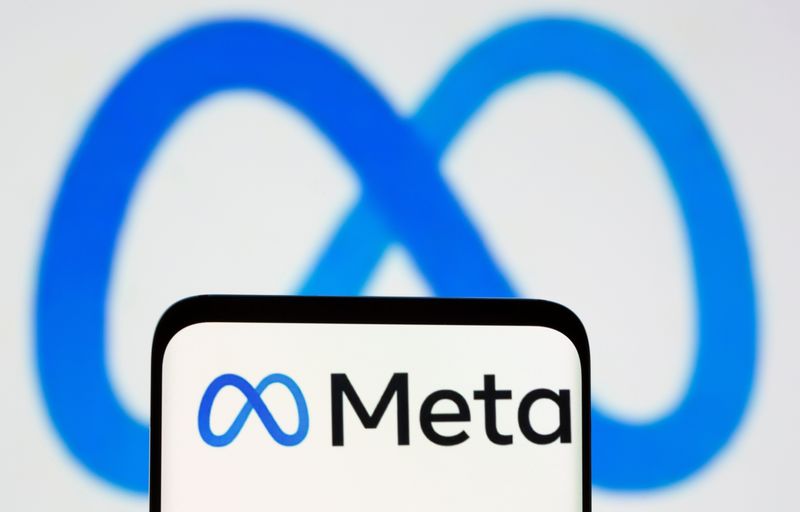Investing.com -- Meta Platforms (NASDAQ:META) reported softer revenue guidance for the current quarter, sending shares lower in premarket trading, as the social media giant looks to ramp-up annual spending by more than previously expected to cash in on the artificial intelligence boom.
For the second quarter, the company guided for total revenue to be in the range of $36.5B to $39B, or $37.75B at the midpoint, missing estimates of $38.3B.
The weaker-than-expected revenue outlook comes as the company now estimates that full-year 2024 capital expenditures will be between $35B to $40B, up from a prior range of $30B to $37B, as the company said it will "continue to accelerate our infrastructure investments to support our artificial intelligence roadmap." Last year, Meta spent $28.1B.
In a call with analysts, Chief Executive Mark Zuckerberg, who previously backed strict cost-cutting measures throughout much of 2023, said that the increased investments were needed to help Meta become "the leading AI company in the world."
Traders have expressed concerns that the jump in expenditures on AI chips and data centers could weigh on margins and not only stifle the social media giant's innovation plans, but also potentially pressure user acquisition spending. In a note to clients, analysts at Goldman Sachs argued that "such a narrative results in a slight reduction in forward revenue trends."
"[T]he biggest question is whether Meta can meaningfully monetize AI over time to justify the investment cycle," analysts at Stifel also said in a note.
The weaker guidance and jump in spending offset first quarter results that beat analyst estimates.
For the three months ended Mar. 31, Meta reported earnings of $4.71 per share (EPS) on revenue of $36.46 billion, with analysts at Jefferies noting that all of the firm's regions saw growth in ad pricing. Analysts polled by Investing.com had called for EPS of $4.32 and revenue of $36.14B.
Family daily active users, or DAP, was 3.24 billion on average for March 2024, an increase of 7% year-over-year.
Yasin Ebrahim contributed to this report.
